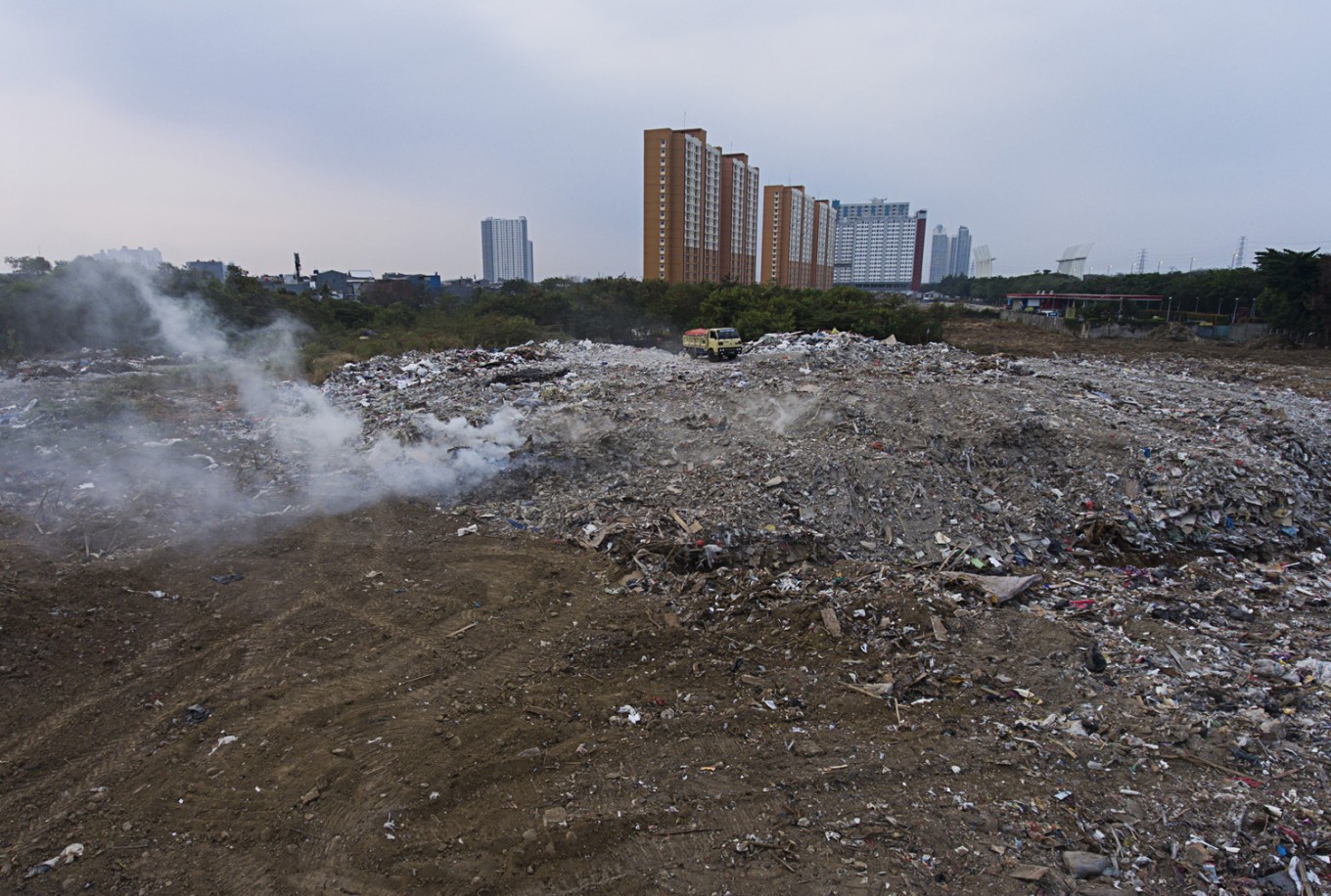Popular Reads
Top Results
Can't find what you're looking for?
View all search resultsPopular Reads
Top Results
Can't find what you're looking for?
View all search resultsJakartans produce more waste throughout Ramadhan, agency says
Change text size
Gift Premium Articles
to Anyone
The Jakarta Environment Agency recorded that the amount of waste produced by Jakartans increased by 4 percent during Ramadhan.
Agency head Isnawa Adji said in a statement that from January to May this year, the agency transported 7,710 tons of waste every day to Bantargebang landfill in Bekasi, West Java.
“The figure rose to an average of 7,999 tons every day since the beginning of Ramadhan. It is an increase of around 289 tons per day,” he said.
“The increase is due to changes in people’s consumption patterns. They tend to consume more food during iftar [breaking-of-the-fast meal] and sahur [predawn meal],” he added.
Most of the excess is domestic waste, such as food, fruit, vegetable and plastic waste.
“[The amount of waste] usually starts decreasing a week before and after Idul Fitri. Many people have left the city for mudik [exodus],” Isnawa said.
The figure would rise again and reach its peak seven to 10 days after the Idul Fitri celebrations as people begin flocking back to the city.
Some 15 percent of workers involved in transporting waste are on leave for Idul Fitri, but Insawa said “I assure that they will work optimally soon after the Idul Fitri celebration ends."










